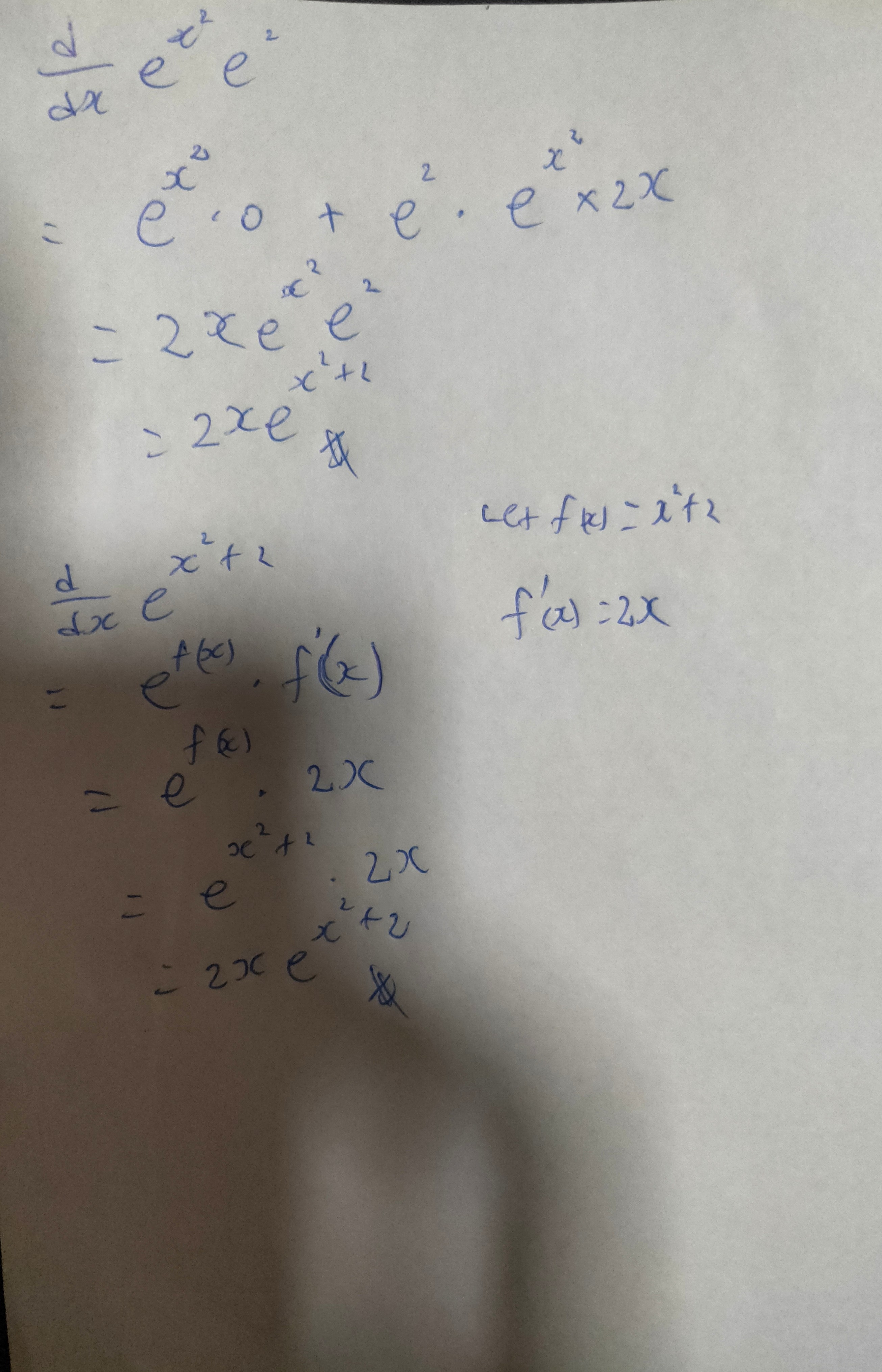Ignatius Yeo's answer to QN's Junior College 2 H1 Maths Singapore question.
done
1 Upvotes
clear 0 Downvotes
The picture shows 2 methods of doing it - product rule and chain rule. For chain rule, let f(x) be x^2+2. Differentiate f(x) and multiply e^f(x) as shown. Hope it helps!
Date Posted:
4 years ago



But the first one, why is e^x^2 when differentiated is e^x^2(0)?
d/dx (e^(x²) e²)
= e^(x²) d/dx (e²) + (d/dx e^(x²) ) e²
= e^(x²) (0) + 2xe^(x²) (e²)
= 2xe²e^(x²)
= 2x e^(x²+2)
Remember that differentiating a constant gives 0